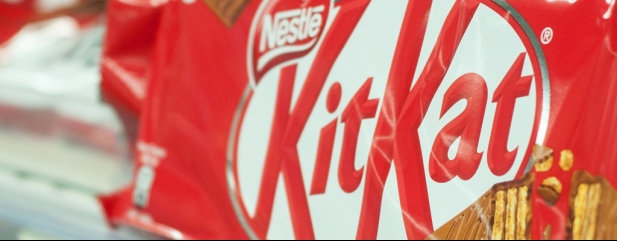Archived article
Please note that tax, investment, pension and ISA rules can change and the information and any views contained in this article may now be inaccurate.
This fund is ideal for a more cautious investor wanting a bit of income

Volatile conditions currently seen in global markets present an opportunity to get exposure to good companies at much cheaper prices.
In the long-term you may look back at periods like now and realise they were great times to invest, even though it didn’t feel like it at the time.
We’ve found a happy middle ground for someone who is willing to take the risk of putting money into stocks and shares in pursuit of higher returns than cash in the bank. But equally, catering for someone who doesn’t want to risk their investment eroding rapidly in value because they’ve backed highly speculative companies which are struggling to deliver.
The answer lies in exchange-traded fund iShares MSCI World Quality Dividend ETF (WQDS) which tracks the performance
of a basket containing more than 300 companies with redeeming qualities.
ROBUST CONSTITUENTS
Nearly half of the companies in the ETF feature in the consumer staples and healthcare sectors. Demand in both areas should be relatively inelastic, regardless of whether a cost-of-living crisis leads to a full-blown recession.
After all, people will still get sick and need treating in all economic climates and essentials like groceries and household goods are likely to be the last area consumers stop spending on.
The healthcare space should also benefit from the end of the pandemic with many countries having significant treatment backlogs which they need to address.
You buy shares in the ETF in the same way you would invest in an individual company on the stock market. Ongoing charges of 0.38% look reasonable and the ETF pays out income twice a year. The dividend yield is 2.7% based on distributions over the past
12 months.
HOW COMPANIES ARE SELECTED FOR THE FUND
The companies inside the ETF’s portfolio are drawn from the MSCI World index with specific criteria used to select the names. They must have higher than average dividend yields relative to the parent index, a track record for consistently paying dividends and the capacity to sustain dividend payments. The index is rebalanced twice a year.
As well as making this an ideal vehicle for income investors, the selection process means you are exposed to companies with relatively attractive valuations, enviable performance histories, strong balance sheets and decent cash generation. The fact they are paying out dividends has shown the companies to be shareholder friendly.
On a three-year view the pound-denominated version of the ETF, which can be held in both ISAs and self-invested personal pensions, has delivered an annualised return of 8.8%.
It is up 4.5% year-to-date whereas the MSCI World index is down nearly 7.2% over the same period in UK currency terms.
TOP HOLDINGS
The US dominates with nearly 60% of the companies in the ETF’s portfolio listed in this country. Switzerland and the UK are in second and third place in geographic terms with a little more than 8% each.
The top three holdings by weight are Johnson & Johnson (JNJ:NYSE), Procter & Gamble (PG:NYSE) and Nestle (NESN:SWX).
Consumer goods firm Procter & Gamble posted first quarter numbers ahead of expectations as the company behind Oral-B toothbrushes and Gillette razors demonstrated its power to put up prices in the face of mounting costs while at the same time boosting its revenue growth guidance.
It was a similar story for its Swiss counterpart Nestle, the KitKat maker which increased its own prices by 5% in the first three months of the year – which in turn helped sales to increase by more than analysts’ forecasts.
Johnson & Johnson develops medical devices and pharmaceutical products alongside its consumer-facing business selling baby shampoo and Listerine mouthwash. It warned on full-year earnings and stopped giving guidance on its Covid vaccine thanks to a global surplus of supply and uncertain demand. However, the company still approved a 6.6% increase in its quarterly dividend.
Among the other key constituents of the ETF are pharmaceutical companies Pfizer (PFE:NYSE) and Abbvie (ABBV:NYSE). Both delivered robust first quarters, with Abbvie notably less reliant on its flagship immunology drug Humira, which will next year lose its patent protection in the US.
Despite waning demand for vaccines, Pfizer reported revenue up 82% in the first three months of the year, with full-year guidance maintained. It followed this up with a $11.8 billion takeover offer for Biohaven Pharmaceutical, which has a leading migraine therapy.
COKE AND PEPSI HAVE FIZZ
Other big holdings in the ETF include Coca-Cola (KO:NYSE) and PepsiCo (PEP:NASDAQ). Both reported first quarter numbers ahead of expectations as they demonstrated their ability to pass costs on to their customers without demand suffering.
Repeat impulse purchases of soft drinks and snacks are unlikely to be significantly impacted by the current cost-of-living pressures and both companies benefit from owning leading brands including Coke and Costa coffee (Coca-Cola) and Pepsi and Walkers crisps (PepsiCo).
Important information:
These articles are provided by Shares magazine which is published by AJ Bell Media, a part of AJ Bell. Shares is not written by AJ Bell.
Shares is provided for your general information and use and is not a personal recommendation to invest. It is not intended to be relied upon by you in making or not making any investment decisions. The investments referred to in these articles will not be suitable for all investors. If in doubt please seek appropriate independent financial advice.
Investors acting on the information in these articles do so at their own risk and AJ Bell Media and its staff do not accept liability for losses suffered by investors as a result of their investment decisions.
Issue contents
Feature
Great Ideas
- Diversified Energy company delivers on dividends and offers an 11%-plus yield
- Disney has recovered some of its magic as subscriber growth beats expectations
- Premier Inn owner looks good if more people choose a staycation
- This fund is ideal for a more cautious investor wanting a bit of income
- Africa’s number two mobile provider delivers on sales and margins
- Building materials firm unfairly punished after latest trading update
Investment Trusts
News
- BT and Vodafone deals add to excitement in once dull telecoms space
- Grocery delivery platform Instacart files $24 billion IPO on the quiet
- Imperial Brands maintains the positive momentum behind the tobacco sector
- Nick Train resists the temptation to change his style after weak period
- Could new Greggs boss Roisin Currie be tempted to reset growth targets?

 magazine
magazine









